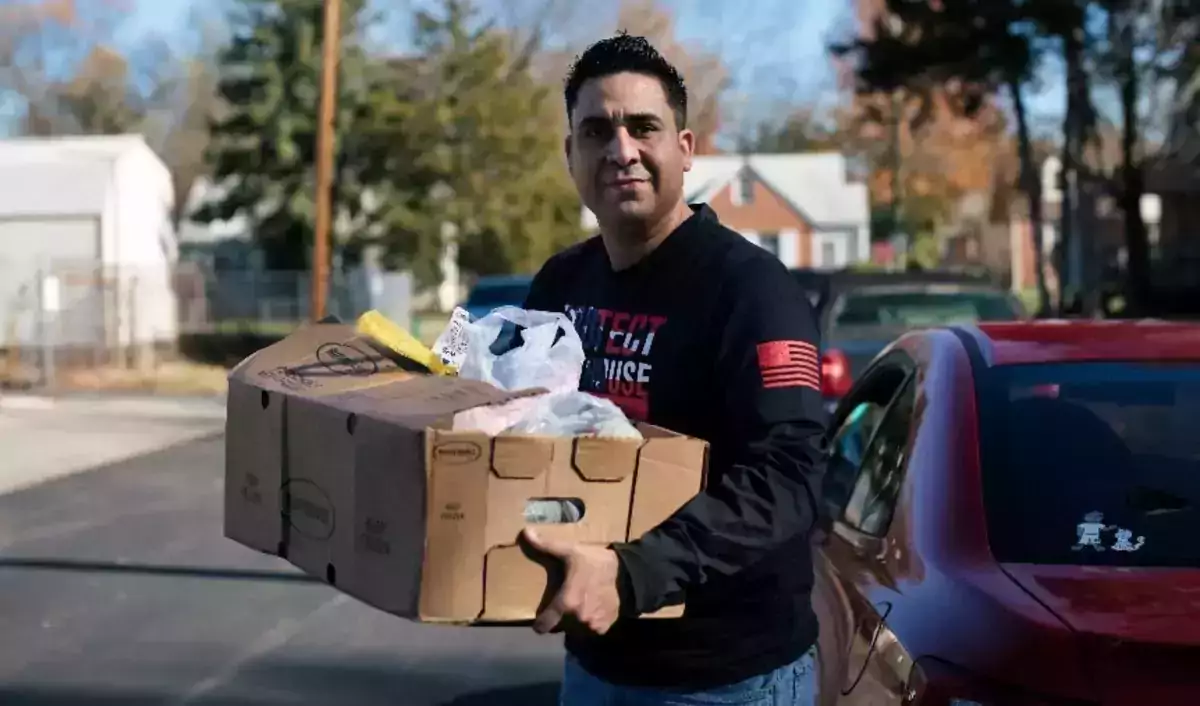HSBC Bank USA and Microsoft will provide grants and resources to support Feeding America, the nation’s largest domestic hunger-relief organization.
The $350,000 two-year grant from HSBC will directly assist Feeding America in expanding its new workforce development initiative within communities in need. Microsoft is providing grant support and online learning content that aligns to today’s most in-demand skills and jobs to help strengthen and scale the initiative.
Feeding America food banks will help neighbours in need secure jobs in their local communities. Through the workforce development pilot, Feeding America food banks in eight markets will pinpoint the necessary workforce training and job search support required for higher wage opportunities within specific communities. The program will help low-income individuals gain expanded access to resources necessary to acquire new skills and connections that result in higher income employment.
Food banks will partner with local and national workforce entities that focus on employment opportunities for individuals in under-resourced communities, which includes identifying industries with the highest projected growth. People of colour, individuals without post-secondary credentials, and earners making notably low wages (less than $35K/year) represent disproportionate shares of the unemployed.
Out of total unemployment in the United States since August 2020, 40% are African American or Hispanic, while 63% have high school education or below. With lack of equitable access to skills training needed for economic mobility, low-income individuals turn to food banks as a source of food security. Feeding America’s workforce development initiative is addressing a root cause of hunger and hopes to promote food and financial security by supporting individuals in securing jobs with competitive wages.
In partnership with consulting firm McKinsey & Co., Feeding America identified eight essential components in effective and scalable workforce development programming. Due to the breadth and reach of Feeding America, its nationwide network of local food banks is already engaged in half of the necessary components, including recruiting participants for workforce support, providing access to other social services, and convening local partners. Food banks play a critical role in providing opportunities for people in need to seek new skills for higher income employment.
Grant awards were selected by Feeding America through a rigorous process. HSBC’s funding flows through the Future Skills High Impact Project Fund, a global initiative supporting ‘jobs of tomorrow’ in alignment with the global focus on sustainable finance and investments that include solutions that help our partners advance their social goals around diversity and equity.
“Given that HSBC’s global philanthropic focus is on employability, it has been tragic to see the impact the past year has had on the job market, particularly for women and people of colour here in the U.S.” said Kelly W. Fisher, head of corporate sustainability for HSBC Bank USA.
“We believe in the proven abilities and reach that Feeding America has, as well as the incredible expertise of Microsoft, and are so proud to launch this program together.”
Since 2012, HSBC has provided $5.5 million in grants to Feeding America to combat food insecurity, with significant focus on their child hunger programs and response to the COVID-19 pandemic.
“As millions of people recover from the economic impact of the COVID-19 pandemic, our new partnership with Feeding America and HSBC focuses on employment opportunities as a way out of food insecurity, especially within underserved communities,” said Kate Behncken, vice president and lead of Microsoft Philanthropies.
“Together, we will scale new and existing programs to help people gain the entry-level and advanced skills needed for today’s in-demand jobs and digital economy.”
Eight Feeding America member food banks are currently piloting in the workforce development initiatives, which includes identifying and assessing what connects people with new jobs and opportunities in their local communities. Each of the pilot sites – Arkansas Foodbank, Mid-Ohio Foodbank, Philabundance, San Antonio Food Bank, North Texas Food Bank, Houston Food Bank, Food Bank of Delaware, and Maryland Food Bank – will focus their efforts on under-resourced communities with high levels of inequality and unemployment amongst people of color and women.
With HSBC and Microsoft’s involvement, Feeding America will implement strategies to help close the equity gap amongst individuals, such as child-care support for individuals participating in the training sessions. Free LinkedIn Learning courses provided by Microsoft will also enhance the quality of skills training for individuals.
Columbus, Ohio faces especially dire rates of inequality, exacerbated by the COVID-19 pandemic. From March to April in 2020, Columbus saw its unemployment rates climb from 4.7% to 13.2%, largely affecting people of colour and women who still suffer from the negative ramifications today.
In March, 60 Minutes highlighted the soaring rates of inequality and unemployment in Columbus, using the unprecedented demand rates at the Mid-Ohio Foodbank to show just how devastating the toll of the pandemic has been on low-income families. At the Mid-Ohio Food Bank alone, the demand for food assistance increased fivefold at the pandemic’s peak.
“Feeding America is grateful to HSBC and Microsoft for their investment in programs that help to improve the lives of people who face hunger. Their generous support will help improve the financial stability of communities that need it most,” said Claire Babineaux-Fontenot, CEO of Feeding America.



